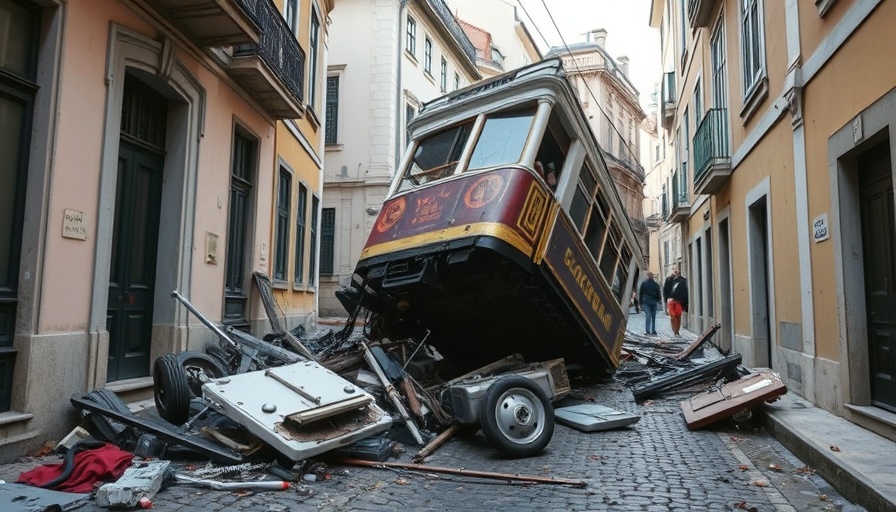
Tragedy Strikes in Lisbon: A Deadly Funicular Accident
In a heart-wrenching incident on September 3, 2025, a funicular crash in Lisbon has claimed the lives of at least 16 individuals, including two Canadians. This tragic event has left family and friends in mourning and raised questions about safety and infrastructure in a popular tourist destination.
Details of the Incident
The Glória funicular, a beloved mode of transport for both locals and tourists, derailed while descending a steep hill in the Portuguese capital. Witness accounts describe a scene of chaos, with passengers experiencing a sudden jolt before the vehicle careened off its track. Emergency responders arrived swiftly, but despite their efforts, the aftermath was devastating.
Who Were the Victims?
Among the deceased is a French-Canadian dual citizen, whose passing has elicited condolences from both the French government and countless individuals on social media. Reports indicate that the Canadian federal government is engaged in liaising with authorities in Portugal, attempting to ascertain more details about the Canadian victims of this tragic incident.
A Global Reflection
As news of the accident spreads, it serves as a poignant reminder of the risks associated with travel. Road and rail accidents can occur in any country, however, safety protocols can vary widely from region to region. Some commentators have pointed to previous safety concerns raised about the funicular system, which has operated for decades, emphasizing the need for regular inspections and upgrades, especially in historically significant transport systems.
Historical Context and Background
The Glória funicular, inaugurated in 1885, has been part of Lisbon's cultural fabric, connecting the bairro of Bairro Alto with the lower city. It represents not only a mode of transportation but a piece of history. As such incidents threaten the integrity of these resources, they prompt a deeper evaluation of how cities maintain and prioritize the safety of these transportation systems.
Counterarguments and Diverse Perspectives
In the wake of such tragedy, there are diverse perspectives surrounding urban safety and accountability. Some argue that traditional forms of transit, such as funiculars, must evolve alongside modern safety standards. Critics note that while the funicular system is a historical asset, it should not compromise the safety of its passengers. Others highlight the importance of preserving cultural landmarks, noting the need for a balance between tradition and innovation in safety measures.
The Emotional Impact of the Tragedy
This incident has not only affected the families involved but resonates within communities both locally and globally. Social media platforms have seen an outpouring of grief, with individuals sharing their condolences and personal stories related to the funicular. The human cost of such accidents is reflected in the shattered families and friends left behind, prompting discussions on support for those affected.
Moving Forward: Lessons Learned
As we grapple with the consequences of this tragedy, it's vital for cities around the world to take proactive measures to enhance public safety in transit. Regular audits, updated infrastructure, and increased investment in transport systems could help mitigate similar accidents in the future.
The Path to Healing
In times of loss, communities rally together. Local organizations and governments often offer support resources to families affected by accidents like this. Hearts remain heavy in Lisbon where city officials are expected to conduct reviews of funicular safety and provide help to survivors and the families of those lost in the crash.
As we reflect on this tragic event, it's essential to keep alive the stories of those who were lost and the lessons learned, ensuring that safety becomes paramount in our urban transportation systems.
 Add Row
Add Row  Add
Add 




Write A Comment